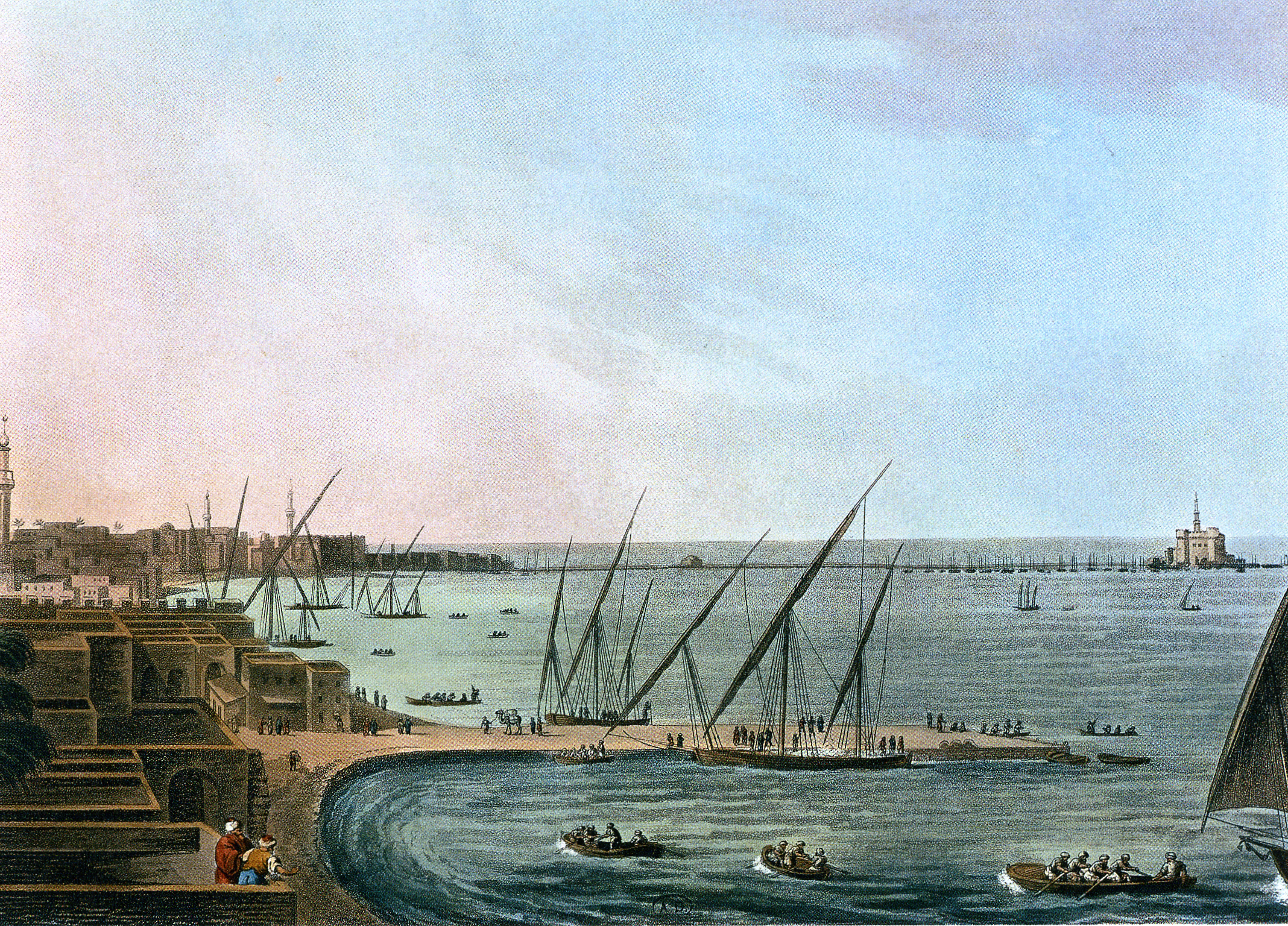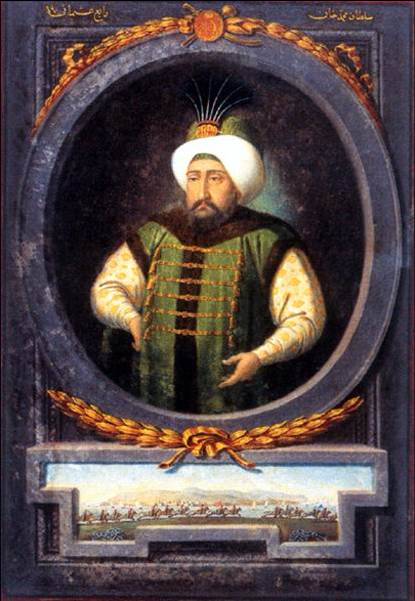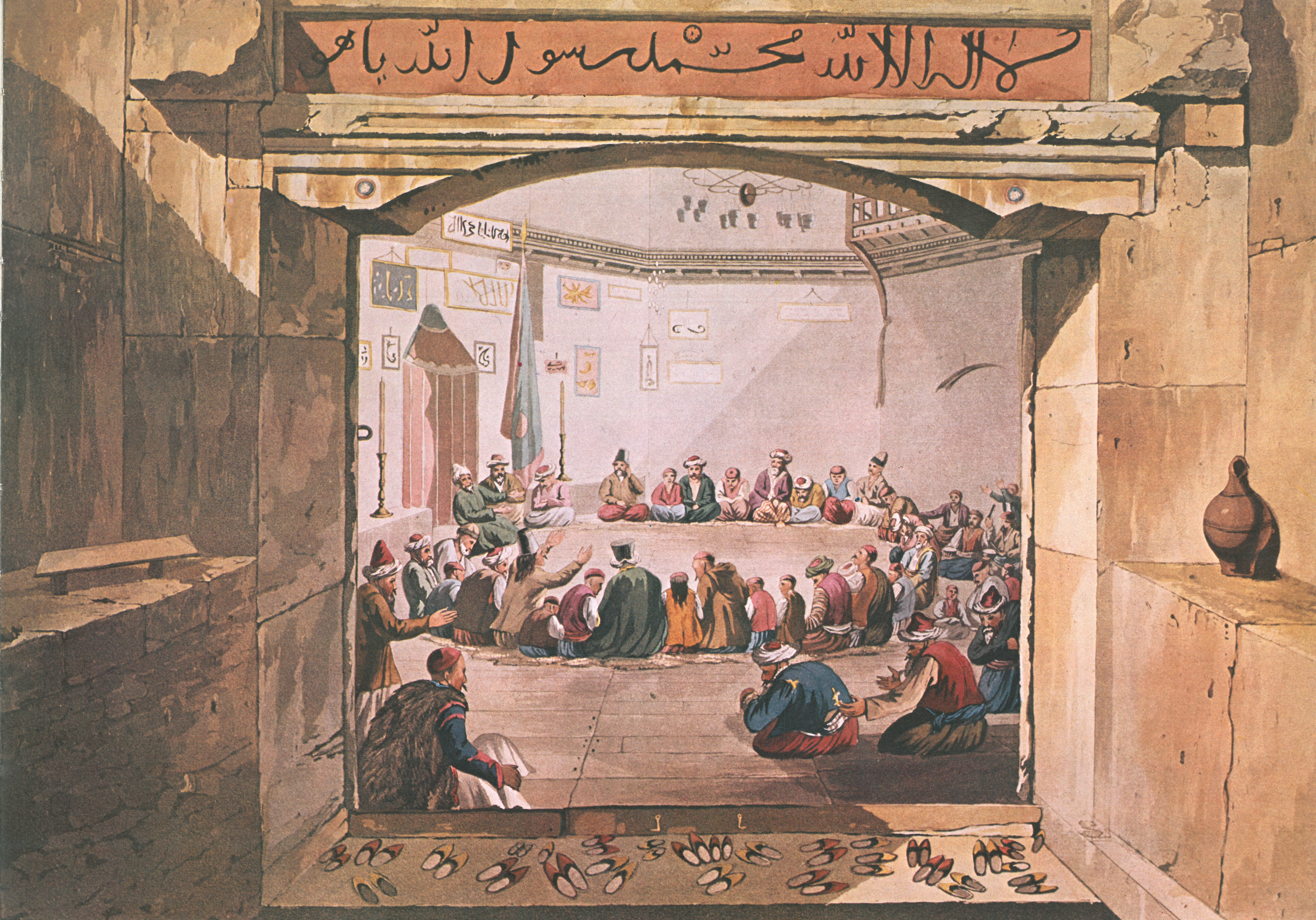|
Munejjim-bashi Ahmed Dede
Ahmed Lütfullah (early 17th century – 27 February 1702), better known by his court title of Münejjim Bashi (; "Chief Astrologer"), was an Ottoman courtier, scholar, Sufi poet and historian. His chief work is the ''Jamiʿ al-Duwal'', a world history particularly valuable for the history of the medieval Muslim dynasties of the regions around the southwestern shore of the Caspian Sea ( Adharbayjan, Shirvan, Arran, Derbent). In Turkish literature, he is referred to also as Ahmed Lütfullah. Biography His father Lütfullah was a native of Ereğli, Konya, but Ahmed was born in Salonica sometime in the first half of the 17th century (in 1631 according to the ''Encyclopædia Britannica'').. He was educated at the Mevlevi dervish lodge in the quarter of Kasımpaşa, spending 15 years there under the supervision of Sheikh Halil Dede. After studies on astronomy and astrology, he advanced to the position of chief court astrologer ('' müneccimbaşi'') in 1667/8. He enjoyed his greates ... [...More Info...] [...Related Items...] OR: [Wikipedia] [Google] [Baidu] [Amazon] |
Astronomer
An astronomer is a scientist in the field of astronomy who focuses on a specific question or field outside the scope of Earth. Astronomers observe astronomical objects, such as stars, planets, natural satellite, moons, comets and galaxy, galaxies – in either observational astronomy, observational (by analyzing the data) or theoretical astronomy. Examples of topics or fields astronomers study include planetary science, Sun, solar astronomy, the Star formation, origin or stellar evolution, evolution of stars, or the galaxy formation and evolution, formation of galaxies. A related but distinct subject is physical cosmology, which studies the Universe as a whole. Types Astronomers typically fall under either of two main types: observational astronomy, observational and theoretical astronomy, theoretical. Observational astronomers make direct observations of Astronomical object, celestial objects and analyze the data. In contrast, theoretical astronomers create and investigate Con ... [...More Info...] [...Related Items...] OR: [Wikipedia] [Google] [Baidu] [Amazon] |
Derbent
Derbent, also historically known as Darband, or Derbend, is the southernmost city in Russia. It is situated along the southeastern coast of the Dagestan, Republic of Dagestan, occupying the narrow gateway between the Caspian Sea and the Caucasus Mountains, and connecting the Eurasian Steppe to the north and the Iranian Plateau to the south. Derbent covers an area of with a population of roughly 120,000 residents. Derbent is considered the oldest city in Russia, with historical documentation dating to the 8th century BC, making it List of oldest continuously inhabited cities, one of the oldest continuously inhabited cities in the world. Due to its strategic location, over the course of history, the city changed ownership many times, particularly among the History of Iran, Persian, Umayyad Caliphate, Arab, Mongol Empire, Mongol, Timurid Empire, Timurid, and Shirvanshah, Shirvan kingdoms. In the early 19th century, the city came under control of the Russian Empire through the Tre ... [...More Info...] [...Related Items...] OR: [Wikipedia] [Google] [Baidu] [Amazon] |
Moralı Hasan Pasha
Morali or Moralı may refer to: People Surname * Jacques Morali (1947–1991), French singer-songwriter * Jonathan Morali (born 1980), musician and composer * Laurent Morali (born 1975), French-born, US-based real estate developer * (born 1957), association football coach Given name * Moralı Ali Pasha (died 1735), Ottoman statesman * Moralı Ibrahim Pasha Moralı Ibrahim Pasha ("Ibrahim Pasha of Morea"; died April or May 1725), also known as Aşçı Ibrahim Pasha ("the Cook") or Hacı Ibrahim Pasha or Ibrahim Pasha al-Kapudan, was an Ottoman statesman and grand admiral (Kapudan Pasha, 1707–09, ... (died 1725), Ottoman statesman and grand admiral Other uses * Moralı, Germencik {{given name, type=both ... [...More Info...] [...Related Items...] OR: [Wikipedia] [Google] [Baidu] [Amazon] |
Ottoman Egypt
Ottoman Egypt was an administrative division of the Ottoman Empire after the conquest of Mamluk Egypt by the Ottomans in 1517. The Ottomans administered Egypt as a province (''eyalet'') of their empire (). It remained formally an Ottoman province until 1914, though in practice it became increasingly autonomous during the 19th century and was under de facto British control from 1882. Egypt always proved a difficult province for the Ottoman Sultans to control, due in part to the continuing power and influence of the Mamluks, the Egyptian military caste who had ruled the country for centuries. As such, Egypt remained semi-autonomous under the Mamluks until Napoleon Bonaparte's French forces invaded in 1798. After Anglo-Turkish forces expelled the French in 1801, Muhammad Ali Pasha, an Albanian military commander of the Ottoman army in Egypt, seized power in 1805, and established an independent state which became an empire through conquests in Syria, Konya and other regions ... [...More Info...] [...Related Items...] OR: [Wikipedia] [Google] [Baidu] [Amazon] |
Padishah
Padishah (; ) is a superlative sovereign title of Persian origin. A form of the word is known already from Middle Persian (or Pahlavi) as ''pātaxšā(h)'' or ''pādixšā(y)''. Middle Persian ''pād'' may stem from Avestan ''paiti'', and is akin to Pati (title). ''Xšāy'' 'to rule' and ''xšāyaθiya'' 'king' are both from Old Persian. It was adopted by several monarchs claiming the highest rank, roughly equivalent to the ancient Persian notion of " Great King", and later adopted by post- Achaemenid and the Mughal emperors of India. However, in some periods it was used more generally for autonomous Muslim rulers, as in the '' Hudud al-'Alam'' of the 10th century, where even some petty princes of Afghanistan are called ''pādshā(h)''/''pādshāʼi''/''pādshāy''. The rulers on the following thrones – the first two effectively commanding major West Asian empires – were styled Padishah: * The Shahanshah of Iran, originating mainly with the Safavids * The Padishah ... [...More Info...] [...Related Items...] OR: [Wikipedia] [Google] [Baidu] [Amazon] |
Mehmed IV
Mehmed IV (; ; 2 January 1642 – 6 January 1693), nicknamed as Mehmed the Hunter (), was the sultan of the Ottoman Empire from 1648 to 1687. He came to the throne at the age of six after his father was overthrown in a coup. Mehmed went on to become the second-longest-reigning sultan in Ottoman history after Suleiman the Magnificent. While the initial and final years of his reign were characterized by military defeat and political instability, during his middle years he oversaw the revival of the empire's fortunes associated with the Köprülü era. Mehmed IV was known by contemporaries as a particularly pious ruler, and was referred to as gazi, or "holy warrior" for his role in the many conquests carried out during his long reign. Under Mehmed IV's reign, the empire reached the height of its territorial expansion in Europe. From a young age he developed a keen interest in hunting, for which he is known as ''avcı'' (translated as "the Hunter"). In 1687, Mehmed was overthrown by ... [...More Info...] [...Related Items...] OR: [Wikipedia] [Google] [Baidu] [Amazon] |
Astronomy
Astronomy is a natural science that studies celestial objects and the phenomena that occur in the cosmos. It uses mathematics, physics, and chemistry in order to explain their origin and their overall evolution. Objects of interest include planets, natural satellite, moons, stars, nebulae, galaxy, galaxies, meteoroids, asteroids, and comets. Relevant phenomena include supernova explosions, gamma ray bursts, quasars, blazars, pulsars, and cosmic microwave background radiation. More generally, astronomy studies everything that originates beyond atmosphere of Earth, Earth's atmosphere. Cosmology is a branch of astronomy that studies the universe as a whole. Astronomy is one of the oldest natural sciences. The early civilizations in recorded history made methodical observations of the night sky. These include the Egyptian astronomy, Egyptians, Babylonian astronomy, Babylonians, Greek astronomy, Greeks, Indian astronomy, Indians, Chinese astronomy, Chinese, Maya civilization, M ... [...More Info...] [...Related Items...] OR: [Wikipedia] [Google] [Baidu] [Amazon] |
Kasımpaşa, Beyoğlu
Kasımpaşa () is a working-class neighbourhood on the northern shore of the Golden Horn within the Beyoğlu district of Istanbul, Turkey, on the European side of the city. Once best known for its naval bases and shipyards, it is a rapidly evolving area, likely to be greatly changed by the Haliçport-Tersane Istanbul projects taking shape along its shoreline in 2022. Adjoining areas include Piyalepaşa, Beyoğlu, Piyalepaşa, Hasköy, Beyoğlu, Hasköy and Şişhane (Istanbul Metro), Şişhane to which it is connected by a Metro tunnel. Also nearby are Dolapdere and Kurtuluş, Kurtulüs which was founded, as Tatavla, by Greek from Chios who chose to leave their homes in Kasımpaşa for higher ground after their church was turned into a mosque. The Golden Horn ferry stops at Kasımpaşa connecting it with Üsküdar, Karaköy, Fener, Balat, Ayvansaray, Eyüp and Sütlüce, Beyoğlu, Sütlüce. Kasımpaşa is the lowest valued property on the Istanbul List of licensed and localize ... [...More Info...] [...Related Items...] OR: [Wikipedia] [Google] [Baidu] [Amazon] |
Dervish
Dervish, Darvesh, or Darwīsh (from ) in Islam can refer broadly to members of a Sufi fraternity (''tariqah''), or more narrowly to a religious mendicant, who chose or accepted material poverty. The latter usage is found particularly in Persian and Turkish (''derviş'') as well as in Tamazight (''Aderwic''), corresponding to the Arabic term '' faqīr''. Their focus is on the universal values of love and service, deserting the illusions of ego (''nafs'') to reach God. In most Sufi orders, a dervish is known to practice ''dhikr'' through physical exertions or religious practices to attain the ecstatic trance to reach God. Their most popular practice is Sama, which is associated with the 13th-century mystic Rumi. In folklore and with adherents of Sufism, dervishes are often credited with the ability to perform miracles and ascribed supernatural powers. Historically, the term Dervish has also been used more loosely, as the designation of various Islamic political movements or mil ... [...More Info...] [...Related Items...] OR: [Wikipedia] [Google] [Baidu] [Amazon] |
Mevlevi
The Mevlevi Order or Mawlawiyya (; ) is a Sufi order that originated in Konya, Turkey (formerly capital of the Sultanate of Rum) and which was founded by the followers of Jalaluddin Muhammad Balkhi Rumi, a 13th-century Persian poet, Sufi mystic, and theologian. The Mevlevis are also known as the "whirling dervishes" due to their famous practice of whirling while performing ''dhikr'' (remembrance of God). Dervish is a common term for an initiate of the Sufi path; whirling is part of the formal sema ceremony and the participants are properly known as ''semazens''. In 2005, UNESCO confirmed "The Mevlevi Sema Ceremony" as amongst the Masterpieces of the Oral and Intangible Heritage of Humanity. Principles and practices Approximately 750 years old, the Mevlevi Order was once a living tradition based on the teachings of Rumi, also known as Mevlevi or Mevlana, who is perhaps one of the most celebrated poets in Turkey. He is also venerated as a mystic within Islam. Rumi's frien ... [...More Info...] [...Related Items...] OR: [Wikipedia] [Google] [Baidu] [Amazon] |
Encyclopædia Britannica
The is a general knowledge, general-knowledge English-language encyclopaedia. It has been published by Encyclopædia Britannica, Inc. since 1768, although the company has changed ownership seven times. The 2010 version of the 15th edition, which spans 32 volumes and 32,640 pages, was the last printed edition. Since 2016, it has been published exclusively as an online encyclopedia, online encyclopaedia. Printed for 244 years, the ''Britannica'' was the longest-running in-print encyclopaedia in the English language. It was first published between 1768 and 1771 in Edinburgh, Scotland, in three volumes. The encyclopaedia grew in size; the second edition was 10 volumes, and by its fourth edition (1801–1810), it had expanded to 20 volumes. Its rising stature as a scholarly work helped recruit eminent contributors, and the 9th (1875–1889) and Encyclopædia Britannica Eleventh Edition, 11th editions (1911) are landmark encyclopaedias for scholarship and literary ... [...More Info...] [...Related Items...] OR: [Wikipedia] [Google] [Baidu] [Amazon] |







